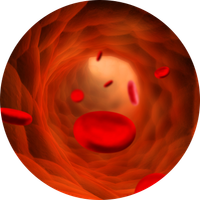How Long Does THC Stay in Your Blood System?
Understanding how long THC (Tetrahydrocannabinol), the primary psychoactive compound in cannabis, remains in your blood system is crucial for various reasons, including drug tests, medical concerns, or personal curiosity.

What Is THC and How Does It Work?
THC is the chemical in cannabis responsible for the "high" users experience. When you consume cannabis—whether by smoking, vaping, or ingesting edibles—THC enters your bloodstream and is eventually metabolized into compounds called THC-COOH, which are stored in the body's fat cells. These metabolites are what drug tests typically detect, not the THC itself.
Why Does Detection Time Matter?
Knowing how long THC stays in your blood is essential for:
Drug Testing
: Many employers, legal systems, or athletic organizations require drug tests.
Health Monitoring
: If you're using medical cannabis, understanding detection times can help manage dosages.
Personal Goals
: Some individuals may want to detox for lifestyle changes.
Factors Affecting How Long THC Stays in Your Blood
Several factors influence how long THC and its metabolites remain detectable in your blood:
Frequency of Use
:
Single Use
: THC may be detectable for 12-24 hours, while THC-COOH can linger for 2-7 days.
Occasional Use
: For those using cannabis a few times a month, metabolites may be detectable for 10-14 days.
Chronic Use
: Regular or heavy users may have detectable THC-COOH for 30-90 days.
Body Fat Percentage
:THC is fat-soluble, meaning it stores in the body's fat cells. Individuals with higher body fat may retain THC metabolites longer.
Metabolism
:A faster metabolism can help clear THC metabolites more quickly, while a slower metabolism may prolong detection.
Method of Consumption
:Smoking or vaping delivers THC to the bloodstream faster, but edibles may result in longer detection times due to slower absorption.
Dosage and Potency
:Higher doses or more potent cannabis strains can increase the time THC remains detectable.
Hydration and Diet
:Staying hydrated and maintaining a healthy diet may support your body’s natural detox processes, though it won’t drastically reduce detection times.
Typical Detection Windows for THC in Blood
Here’s a breakdown of how long THC and THC-COOH are typically detectable in blood based on usage patterns:
Single Use
: THC (12-24 hours), THC-COOH (2-7 days)
Occasional Use (1-3 times per week)
: THC (up to 3 days), THC-COOH (10-14 days)
Regular Use (daily)
: THC (up to 7 days), THC-COOH (2-4 weeks)
Chronic Heavy Use
: THC (up to 2 weeks), THC-COOH (30-90 days)
Note: These are general estimates. Detection times vary based on individual factors and the sensitivity of the drug test.
Types of Drug Tests and Detection
Blood tests are one of several methods used to detect THC. Here’s how they compare:
Blood Tests
: Detect THC and THC-COOH for up to 90 days in heavy users. They’re less common than urine tests but are used in medical or legal settings.
Urine Tests
: Most common for workplace testing, detecting THC-COOH for similar durations as blood tests.
Saliva Tests
: Detect THC for 24-72 hours, ideal for recent use detection.
Hair Tests
: Can detect cannabis use for up to 90 days but are less accurate for recent use.
How to Clear THC from Your System Faster
While there’s no guaranteed way to instantly remove THC from your system, these tips may help support your body’s natural detox process:
Hydrate
: Drink plenty of water to support kidney function and flush out toxins.
Exercise
: Regular physical activity, like cardio or strength training, can help burn fat cells where THC metabolites are stored.
Healthy Diet
: Focus on nutrient-rich foods like fruits, vegetables, and lean proteins to boost metabolism.
Avoid Further Use
: Stop using cannabis to prevent adding more THC to your system.
Consider Detox Products
: Some detox drinks or kits claim to help, but their effectiveness is debated, and results vary.
Disclaimer: This article is for informational purposes only and is not medical or legal advice.
